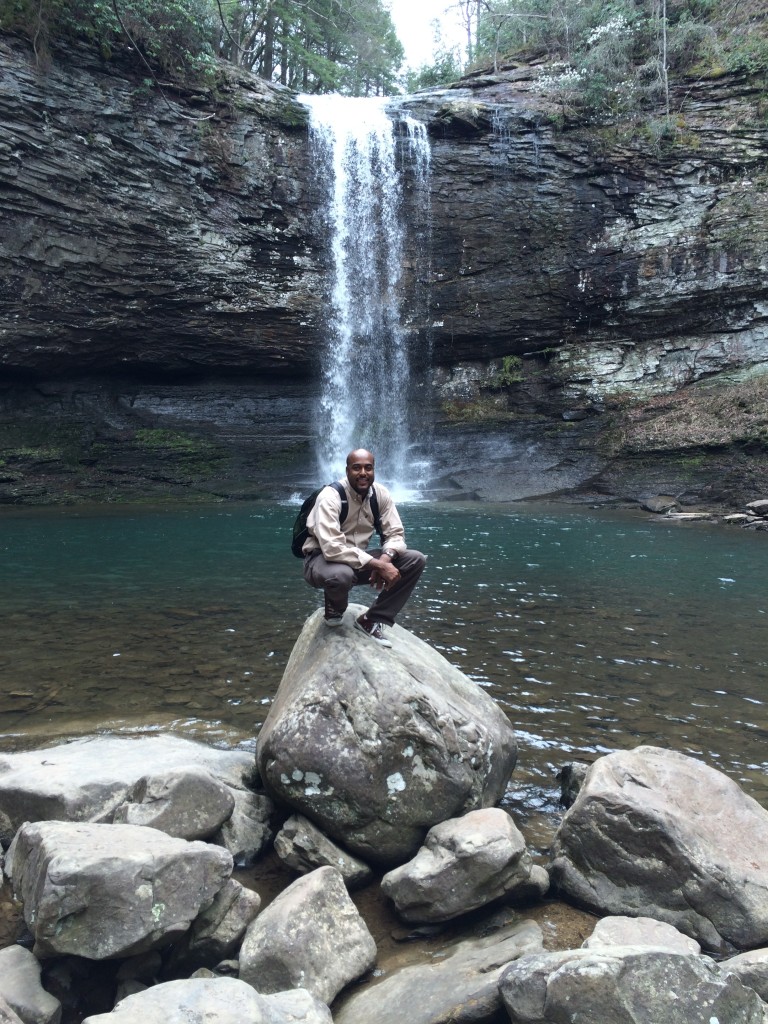While rarely front and center in media coverage of all things green, people of color are an essential and growing part of the environmental movement. Meet three people—a journalist, a scientist, and a leadership developer—who are leading the charge. All three are dedicated educators, passionate conservationists, and avid nature-lovers, and they want people of every color to experience both the deep joy and the great responsibility of stewarding God’s creation.
 Stefan Moss is the principal consultant at Solomon’s Minds, a sustainability consulting firm that specializes in the development of environmental education tools for businesses, schools, and faith-based organizations. As a research scientist at the University of Tennessee at Chattanooga, he published a groundbreaking study on freshwater turtles in the Tennessee River, documenting the presence of persistent organic pollutants, flame retardants, and pesticides in their blood, an effort he hopes to duplicate with the endangered freshwater turtles in his native Bahamas. A man of many talents, he is also a singer-songwriter and the recipient of a Gospel Music Association Dove Award.
Stefan Moss is the principal consultant at Solomon’s Minds, a sustainability consulting firm that specializes in the development of environmental education tools for businesses, schools, and faith-based organizations. As a research scientist at the University of Tennessee at Chattanooga, he published a groundbreaking study on freshwater turtles in the Tennessee River, documenting the presence of persistent organic pollutants, flame retardants, and pesticides in their blood, an effort he hopes to duplicate with the endangered freshwater turtles in his native Bahamas. A man of many talents, he is also a singer-songwriter and the recipient of a Gospel Music Association Dove Award.
“A sustainable gospel is one that can carry the hope of Jesus Christ to the ends of the earth, without destroying it in the process.”
– Stefan Moss
What do Christians most need to understand when it comes to care of God’s creation?
Stefan Moss: I think one of the common misconceptions regarding the environment is that, as Christians, we have no direct mandate to either care for or be intimately concerned about God’s creation. For some, environmental issues are a distraction and, in the context of traditional evangelical thought, a diversion from the focus of the Great Commission. However, we cannot separate our environmental impact from the advancement of the gospel, because we rely on Earth’s natural resources in the furtherance of the message. Every church that is built and every missionary trip taken has a footprint, in terms of land space, fuel usage, waste generation, and so on.
Through the years church leaders have become savvy in business and have maintained a presence in politics. They have become experts in branding, marketing, and promotion. Churches have excelled in the arts with dramatic theatrical presentations and contemporary music that inspires, but when it comes to the care and protection of the environment, there is a noticeable lack of interest in many circles. What we need to understand is that a sustainable gospel is one that can carry the hope of Jesus Christ to the ends of the earth, without destroying it in the process.
Who are your most valuable allies when it comes to creation care?
Moss: Our most valuable allies in creation care are those who are engaged and informed of the relevant environmental issues that affect their communities and are seeking solutions. Often these individuals, businesses, or organizations are not aligned with our theological convictions and may not necessarily even expect that we are as interested in the issues as they are. However, even in the reality of our differences we can work together to achieve some common goals—namely, healthy communities and sustainable growth that doesn’t sacrifice the future for the present.
If you could change one thing about the environmental movement in this country (or globally) what would it be?
Moss: Diversity is a critical component of a healthy environment. In agriculture, for example, if only one crop is cultivated on a tract of land for too long, there is a risk of compromising the soil and depleting it of its nutrients. Similarly, the environmental movement in the United States has been viewed by some as lacking diversity and focusing on a certain demographic. In order to be sustainable, it must diversify so that fresh ideas and new stories can be told. As a black scientist and follower of Christ, I view the lack of diversity through both lenses. I’ve attended many environmental conferences where I was one of only a few individuals of color in the audience.
Interestingly, many of the key environmental issues today disproportionately affect minority communities. There is room for growth in terms of environmental education and outreach. The Christian community can contribute much to the environmental conversation by promoting stewardship and a more holistic focus in its community outreach. There are many churches out there that are already doing this and engaging in activities such as planting gardens, organizing community cleanups, and much more. A balanced approach with spiritual, social, economic, and environmental underpinnings can increase our effectiveness as kingdom citizens in our goal of sharing the love of Christ with the world.
Who do you most desire to reach out to in your work and why?
Moss: I’m wide open in terms of outreach interests. As a professor, I am passionate about seeing my students gain an understanding of their role as agents of change in their respective career interests. I am also currently serving as resident scientist at Praise Academy, a K-12 school in Powder Springs, Ga., where, through a grant from the Environmental Education Alliance of Georgia, we have been able to develop an outdoor classroom where students can get into nature and learn more about local flora and fauna.
Recently, I began serving as Atlanta lead coordinator for Outdoor Afro, a national organization that seeks to reconnect African Americans to nature using recreational activities. My personal philosophy is that in order to create a healthy external environment, we must first begin with our own internal environment, pursuing ideas and thoughts that empower us and bring hope. When we are at peace and are able to think clearly, then we will begin making better decisions—not just individually but also collectively toward a more sustainable future.
Meet Audrey Peterman and Marcelo Bonto.


